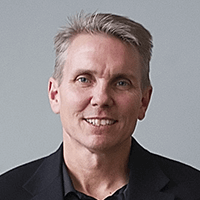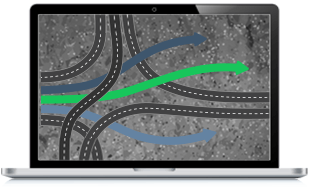A business plan can be great on paper, but without tapping into the human element of an organization to motivate and iterate, execution cannot and will not occur. Strategy activation and focused execution create a continuous cycle of improvement, united by the thousands of feedback points gathered from machine learning data and the eyes, ears and hearts of your organization.
Technology today is enabling forward-thinking leaders to approach change management with a through line from plan-building to results – and the igniting steps in between. The process consists of defining a future state, mobilizing the team and closing skill gaps, using a system to manage hundreds of initiatives and checking in regularly to report on acceleration through massive actions.
In this webinar, Alan Todd of CorpU discusses what it takes to truly drive transformation and how to master the four keys to change management that give leaders the ability to make proactive, effective decisions.
You will learn how to:
- Support iteration by adapting to frequent changes to keep your strategy dynamic
- Mobilize teams across multiple plans, locations and hundreds of initiatives
- Collect, organize and communicate information for cross-functional transparency
MEET THE SPEAKERS

FOUNDER & CEO
CorpU
Alan Todd
Alan Todd, Founder and CEO of CorpU, is regarded as one of the world’s pre-eminent authorities on strategy and leadership. A former Inc. Magazine/Ernst & Young Entrepreneur of the Year, Todd’s writing and commentary have appeared in Forbes, Fortune, Fast Company and Wired, and his insights are routinely solicited from Fortune 1000 companies like Walmart, Coca-Cola, Boeing and Johnson & Johnson. His technical innovations in Strategy Activation are powering global growth for companies with combined annual revenues of over $1 trillion. He is a co-founder of Harrisburg University and a past trustee or advisor to Dickinson College, Penn State University and the University of Pennsylvania’s Wharton School of Business and Graduate School of Education. He completed his master and doctoral studies at both Wharton and Penn GSE.




